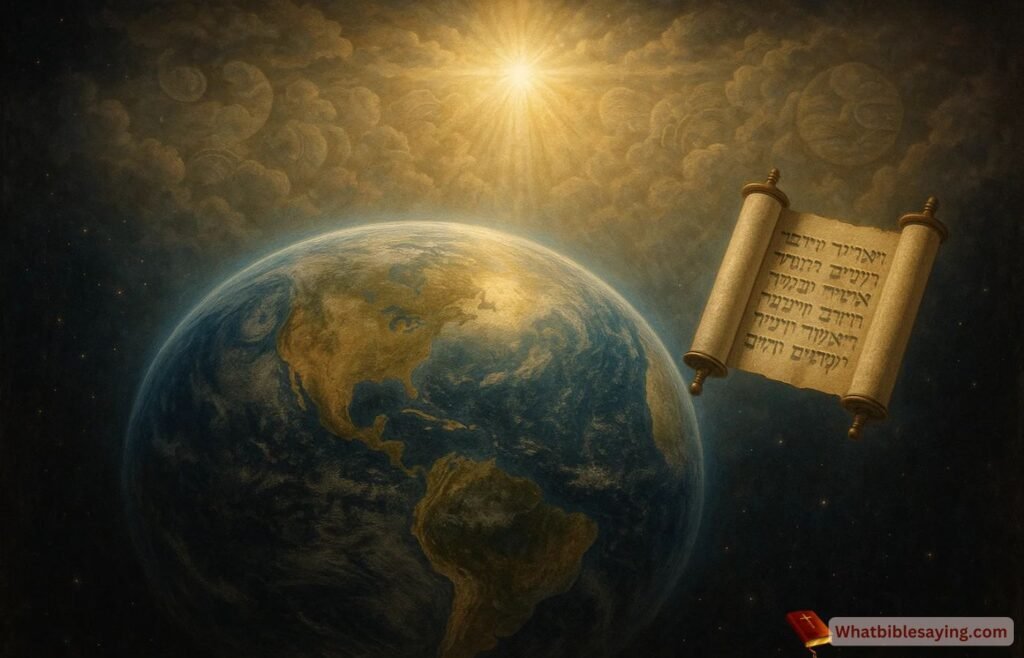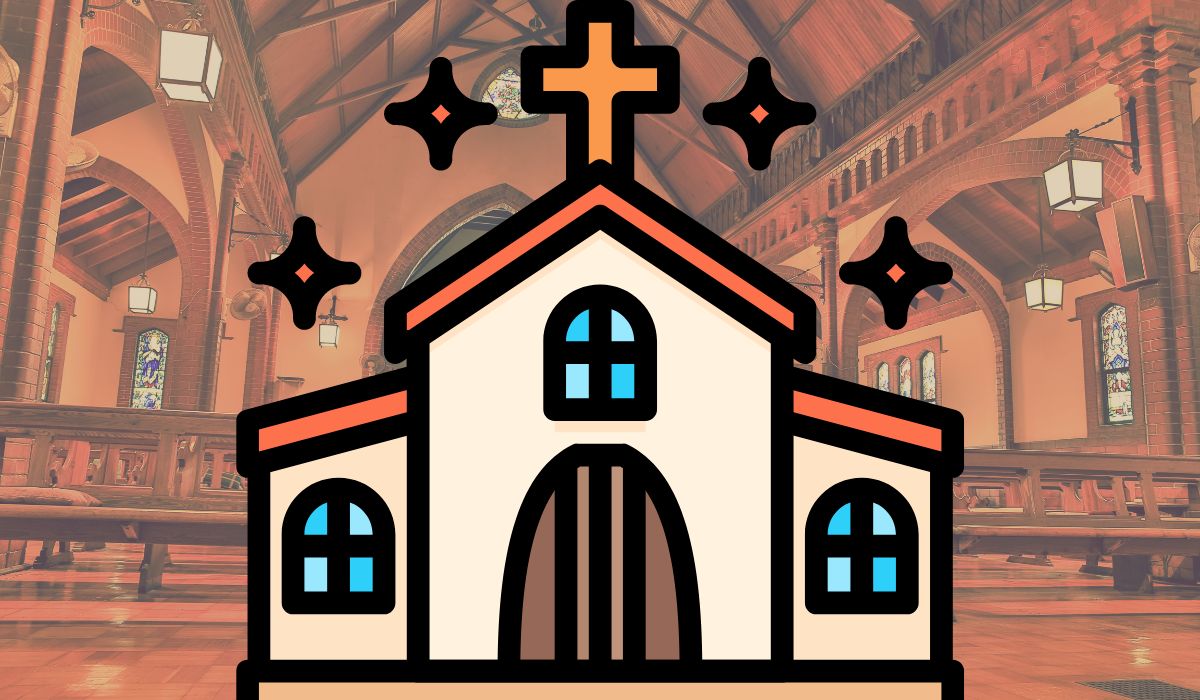 Have you ever looked up at the stars or stood quietly in nature and asked, “How old is this world we live in?” It’s a question as old as time itself. As believers, we often wonder Does the Bible give us a clear answer? Can we actually calculate the age of the Earth from Scripture, or is it meant to be a mystery?
Have you ever looked up at the stars or stood quietly in nature and asked, “How old is this world we live in?” It’s a question as old as time itself. As believers, we often wonder Does the Bible give us a clear answer? Can we actually calculate the age of the Earth from Scripture, or is it meant to be a mystery?
Let’s take a peaceful walk through the Bible together and explore what it says and doesn’t say about the Earth’s age. We’ll dig into the creation account in Genesis, look at biblical genealogies, hear what faithful scholars have said, and see how all of this connects with Jesus, our Redeemer.
The Bible Doesn’t Give an Exact Age But It Gives Clues
The Bible never says directly, “The Earth is 6,000 years old.” You won’t find a verse with that number. But that hasn’t stopped faithful people from trying to understand the timeline of creation by using Scripture.
Many Christians, especially in earlier centuries, took a literal reading of the Bible’s genealogies especially in Genesis 5 and 11 to count how many years passed from Adam to Jesus, and then from Jesus to today. They added up the ages of fathers and sons, generation by generation.
One famous attempt came from Archbishop James Ussher, a respected scholar from the 1600s. After studying the Old Testament timelines, he concluded that creation took place in 4004 B.C., making the Earth just over 6,000 years old today.
Was Ussher right? Maybe. But we must remember his conclusion was a faithful interpretation, not a direct revelation. And it was based on the idea that each biblical generation flowed one after another without gaps. That might not always be the case.
In the Beginning: What Genesis Tells Us
Let’s go back to the very beginning.
“In the beginning, God created the heavens and the earth.” Genesis 1:1
The creation story in Genesis describes six days of creative work, followed by a day of rest. The word “day” in Hebrew is “yom,” which can mean a 24-hour day but also a longer period of time, depending on the context.
Some believers understand these as literal 24-hour days. Others see them as symbolic “ages” or phases of God’s creative work. Both views aim to honor the Scripture. But they lead to different understandings of how old the Earth might be.
If we take the days literally and add the years of generations from Adam onward, we get the young Earth view around 6,000 years.
If we interpret the days as long periods, or if we see gaps in genealogies, the age could be much older.
Who Calculated the Age of the Earth from the Bible?
As mentioned, Archbishop Ussher is most often associated with this calculation. He didn’t do it lightly. He spent years cross-referencing Scripture with historical events, king lists, and ancient calendars.
His estimate 4004 B.C. was even printed in the margins of some early King James Bibles. For a long time, many Christians accepted this view.
But it’s important to remember: Ussher wasn’t trying to be “scientific” in the way we use the term today. He was simply honoring God’s Word by trusting its chronology. His goal wasn’t to argue against science it was to understand the story of salvation history through time.
How Old Was the Earth When Jesus Came?
If we follow Ussher’s timeline, the Earth would have been about 4,000 years old when Jesus was born.
That fits with many traditional timelines. From Adam to Abraham, then Moses to David, and prophets to Christ, a rough 4,000-year arc can be drawn using Scripture. And many believers see Jesus’ birth as the climax of that sacred timeline.
But again, this depends on how literally we take the ages and genealogies. Some scholars argue that biblical lineages were sometimes symbolic highlighting key names, not always every generation.
Still, it’s beautiful to see how Jesus steps into human history right on time. Whether Earth was 4,000 or 4 billion years old, He came when we needed Him most.
What About Science and the Bible?
Science tells us the Earth is about 4.5 billion years old, based on radiometric dating, geology, and astronomy. That’s a big difference from 6,000 years.
Some Christians see this as a conflict. Others see it as a matter of perspective and purpose.
The Bible isn’t a science textbook. It’s God’s love letter, focused on the story of redemption, not scientific measurements. Its purpose is to tell us who created the world, not necessarily when or how in human terms.
Many faithful believers hold to old Earth views (accepting scientific age estimates) while still trusting completely in Genesis and Scripture.
Others still hold to a young Earth view, based on a literal reading of the text. Both groups can love Jesus, honor Scripture, and walk in faith.
Do Catholics Believe the Earth Is 6,000 Years Old?
Catholic teaching does not require belief in a young Earth.
In fact, the Catholic Church has said that faith and science can work together. Pope Pius XII (in Humani Generis) allowed room for exploring evolution and the Earth’s age, as long as God remains the Creator and Adam and Eve are real, historical people in some sense.
Many Catholic scholars believe the Earth is billions of years old, and that Genesis uses symbolic language to describe spiritual truths about God, creation, and human dignity.
So while some individual Catholics may believe the Earth is 6,000 years old, it’s not a required teaching of the Church.
Does the Bible Say We Live 70 Years?
This is a related and thoughtful question. Yes, the Bible gives an estimate of human lifespan:
“The days of our years are threescore years and ten…” Psalm 90:10 (KJV)
That’s 70 years.
But this verse, written by Moses, is more poetic than precise. It’s not a promise or a limit. It simply reflects the average human lifespan at that time.
Many people in Scripture lived longer Abraham died at 175, Moses at 120, and Adam lived 930 years. Some lived shorter lives.
So while Psalm 90:10 offers wisdom about the brevity of life, it’s not connected to the age of the Earth.
Still, it reminds us that our time is short compared to God’s eternal timeline and we should use our days wisely.
Why Does This Question Even Matter?
You might be wondering, “Why should I care how old the Earth is?”
That’s a fair question. And the truth is, our salvation doesn’t depend on the answer. We are not saved by knowing Earth’s age we are saved by knowing Jesus.
But studying the age of the Earth helps us understand how God reveals Himself in time. It teaches us about:
Creation the beauty and order of God’s design
Genealogy the faithfulness of generations
God’s patience His timeline is not like ours
Jesus’ arrival at just the right time in history
Whether the Earth is 6,000 or 4.5 billion years old, one thing is certain: God made it, He sustains it, and He will renew it.
A Peaceful Path Forward
Instead of getting stuck in arguments, let’s focus on what matters most:
God is the Creator.
We are His creation.
Time is in His hands.
The question, “How old is the Earth?” is interesting. But a better question might be, “What is God doing with this Earth and with me right now?”
Jesus said:
“Heaven and Earth will pass away, but My words will never pass away.” Matthew 24:35
That tells us something deeper. While Earth has an age, God’s Word is timeless. And so is His love for you.
So,
Dear friend, whether you believe the Earth is young or old, the important thing is this: You were created on purpose, by a loving God, in a world that reflects His beauty and power.
Don’t get discouraged by debates or doubt. Open your Bible, read the Word, and listen for His voice. The same God who created the heavens and the Earth… also knows your name.












